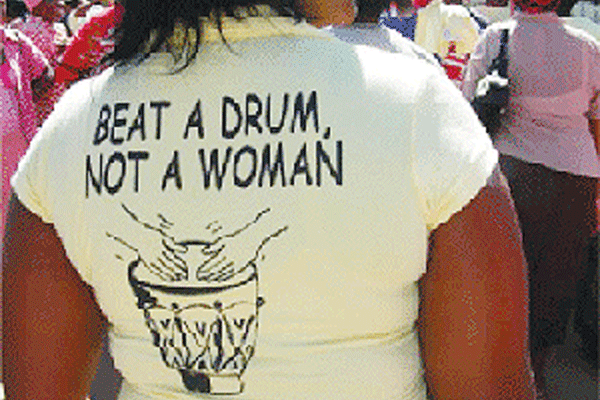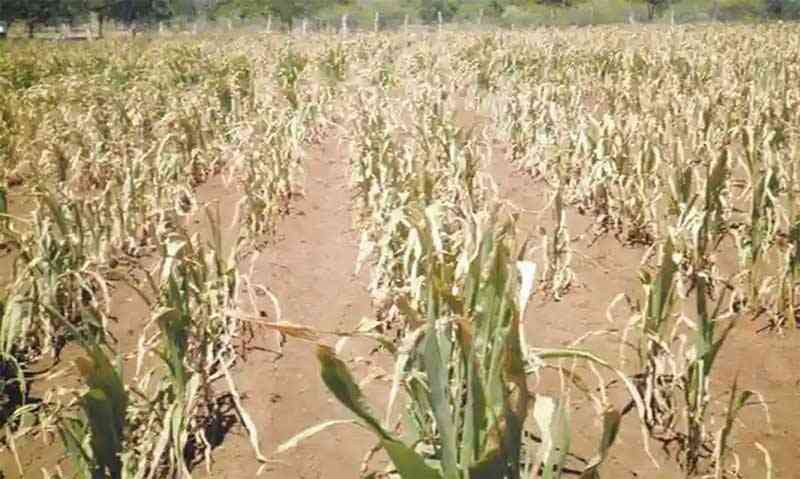
The place looks deserted, unassuming even. It merges well with the surrounds of Rusape General Hospital, but behind the grey walls of the little cabins of the Makoni One Stop Centre, are harrowing tales of victims of gender-based violence (GBV).
By Phyllis Mbanje

Mostly women, some of the survivors are as young as five years old, barely out of their diapers.
The majority of them have been raped by someone known to them, someone they trusted.
But that someone violated their bodies in the most callous manner and exposed their young minds to abuse defies logic.
With bruised bodies and highly traumatised by the horrors of the abuse they come to the centre, a joint initiative by the ministries of Women Affairs, Gender and Community Development, Health and Child Care with technical and financial support from United Nations Fund for Population Activities (UNFPA), the centre has become a beacon of hope for the survivors.
Just behind the building are swings in colourful shades of a rainbow. They resemble a playfield, but they are just a confirmation that some of the victims are mere children.
The colourful scene is in complete contrast with horrible stories that these children have had to tell.
- Chamisa under fire over US$120K donation
- Mavhunga puts DeMbare into Chibuku quarterfinals
- Pension funds bet on Cabora Bassa oilfields
- Councils defy govt fire tender directive
Keep Reading
But it gives them hope, allows them and reminds them that they are still children regardless of what they have been put through.
“We realised that in such communities there is limited scope, comprehensiveness and capacity and in most cases a survivor is unable to access a complete service package due to travel costs related to accessing the required services,” acting director of gender services in the Women Affairs ministry, Stephen Nyaruwata said.
The centre, which serves the whole of Manicaland population offers a holistic approach in dealing with the survivors, who are able to access all their services in one place.
Although GBV remains a serious challenge in the country, it is underfunded and most communities lack access to basic violence response services, which include health care, psycho-social support services and legal aid for all survivors.
“When the victims come, they are referred to the victim friendly unit (VFU) manned by the Zimbabwe Republic Police.
The officers have been trained on how to handle the victims, who are obviously very fragile when they come to the centre,” the administrator of the one stop centre, Theresa Mwaera, said.
The VFU officers are pivotal in assisting the survivors with the court process and apprehension of the perpetrators.
“They issue Form 234, which is a request for medical examination in cases of suspected sexual abuse,” Mwaera said.
This allows for processes like immediate medical services, which include HIV and pregnancy tests, provision of emergency contraception and HIV post-exposure prophylaxis (PEP) within 72 hours.
PEP involves taking antiretroviral medicines (ART) after being potentially exposed to HIV to prevent becoming infected. PEP must be started within 72 hours after a recent possible exposure to HIV.
The centre also has forensic facilities to collect and analyse the necessary forensic evidence for prosecution.
The Women Affairs ministry helps with creation of awareness of the services at the centre and provide emotional and psychological support services to survivors.
Resident at the centre is the child focused organisation Childline who also offer counselling services.
Their services are not limited to the survivor, but also extended to the family.
The Zimbabwe Women Lawyers Association is on call to provide survivors with information and advice on accessing justice through laying criminal charges against perpetrators. They are also instrumental in assisting with court processes.
So what has the one stop centre achieved?
“Processing of cases is faster and more co-ordinated because service providers are under one roof. This model reduces the transport costs for the survivor as everything is offered in one location,” Nyaruwata said.
Many survivors of GBV, particularly of a sexual nature, do not seek help, as the services are in different places, a situation, which might discourage them and a vindication for the crime committed against them.
In 2016, 2 083 clients accessed services at the centre and since the establishment of the facility has been increased access to basic health and legal support to children and adult survivors of GBV.
Addressing media in Nyanga at a UN media workshop on development and humanitarian reporting, Verena Bruno from UNFPA said GBV remained a huge problem in Zimbabwe.
“In the last 12 months, 14,5% of women and girls have experienced some form of violence,” she said.
Although there is legislation to address GBV (Domestic Violence Act, National GBV Strategy, 2013 Constitution) implementation is not always effective.
Bruno said resource mobilisation efforts were on-going for both development and humanitarian programmes in order to scale up GBV prevention and response in Zimbabwe.











